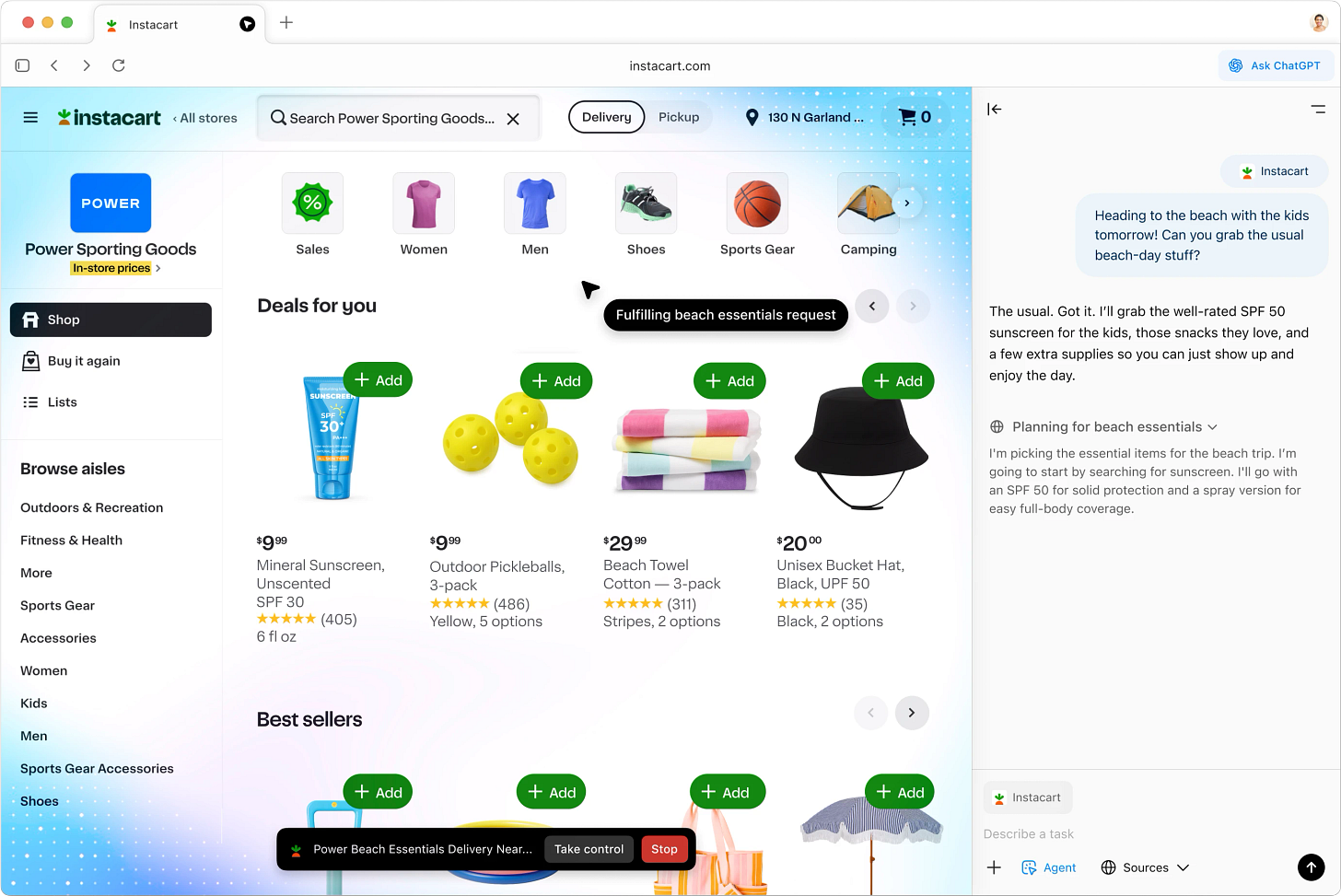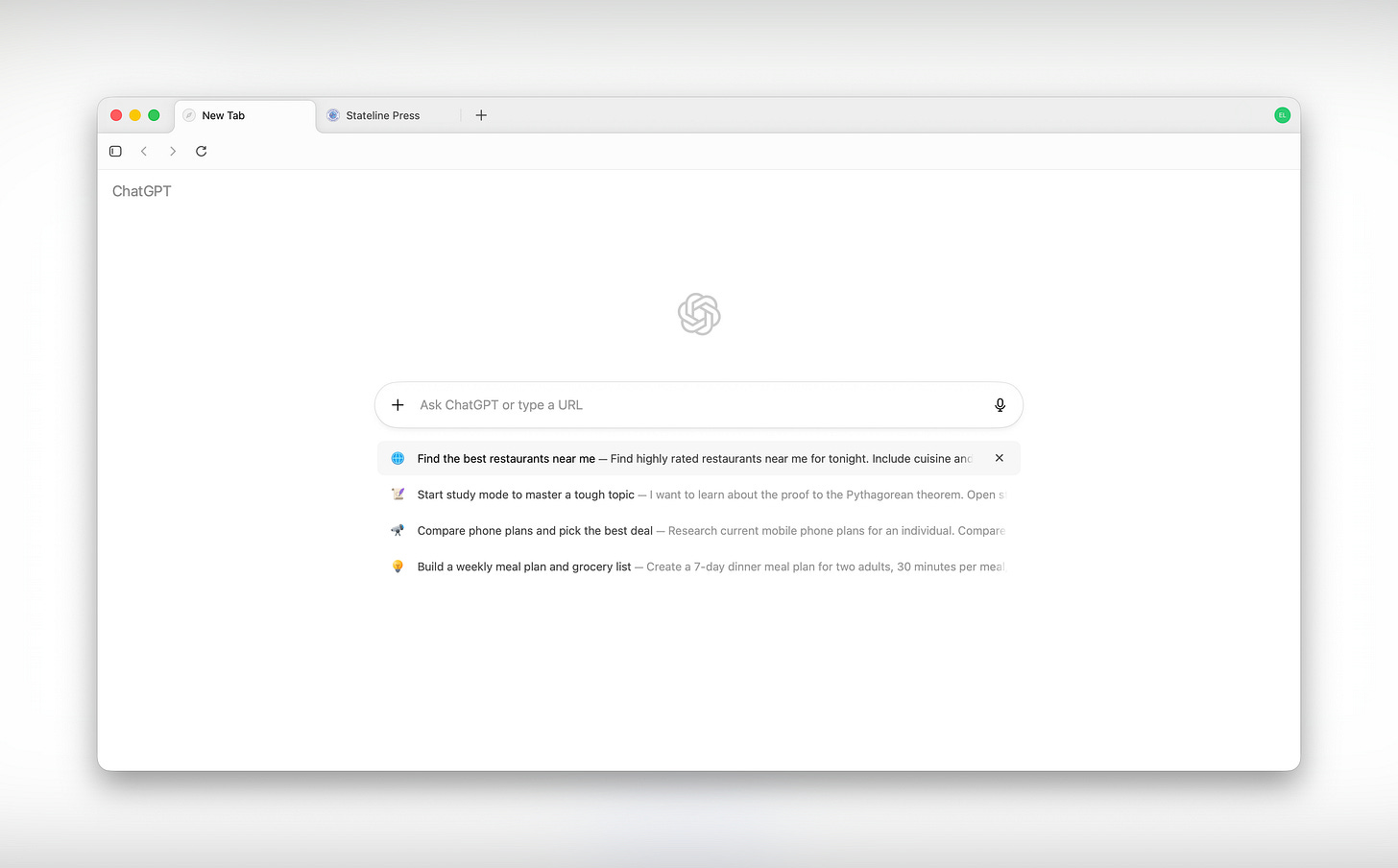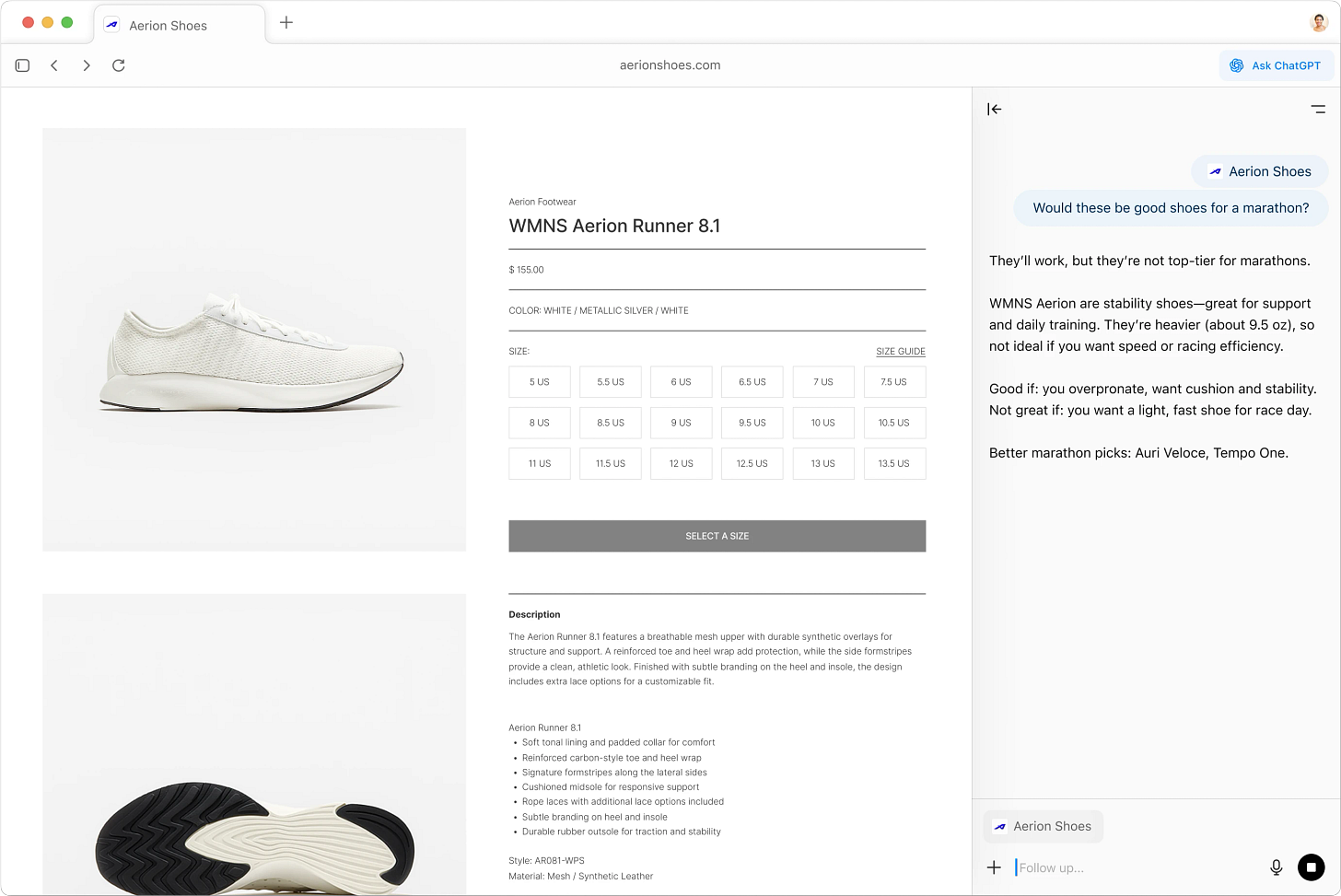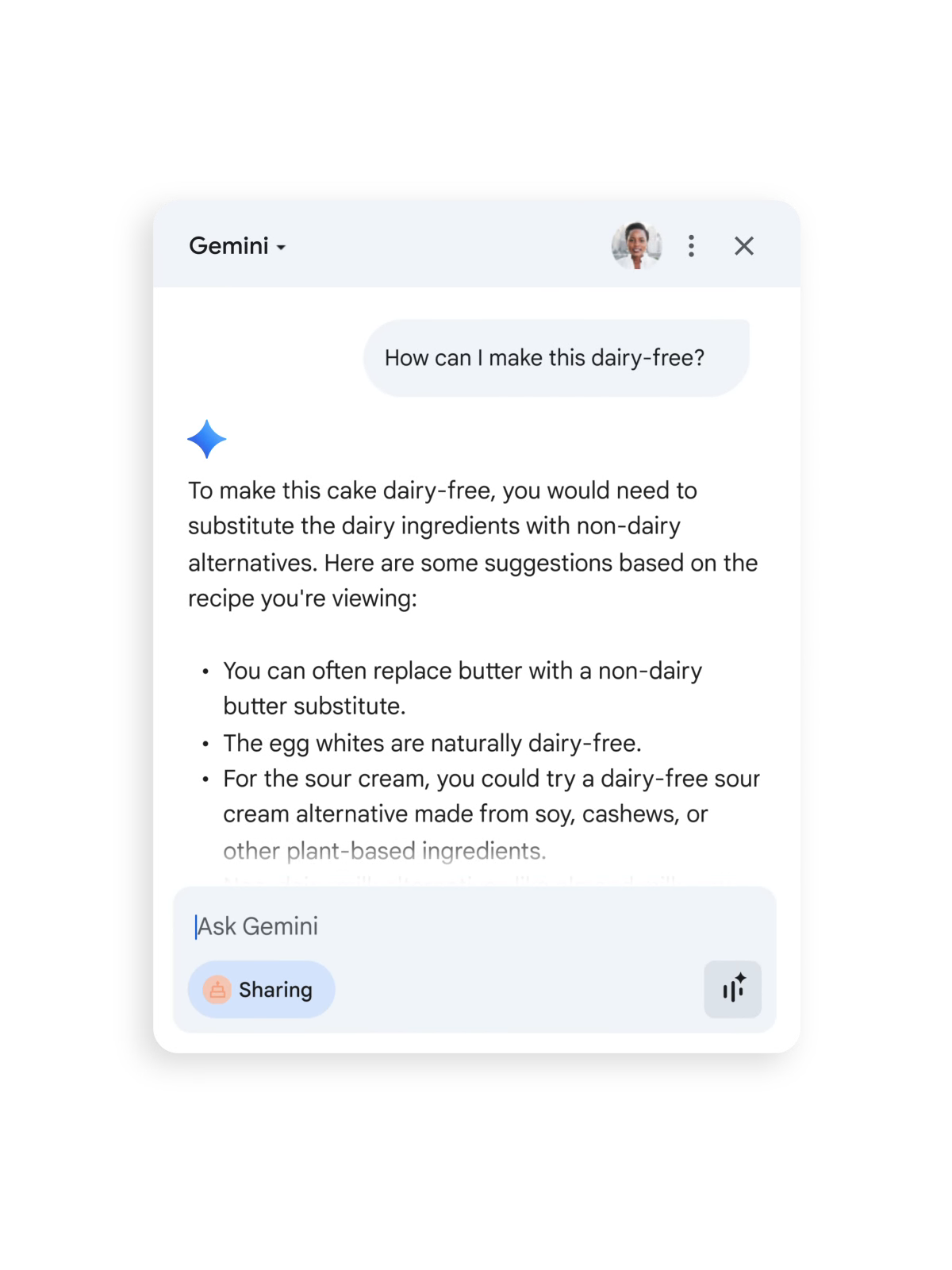OpenAI launches ChatGPT Atlas browser in direct competition with Google Chrome
OpenAI launched ChatGPT Atlas on October 21, 2025, a new AI-powered web browser that integrates the company’s conversational chatbot directly into the browsing experience. The browser is currently available worldwide for macOS users, with Windows, iOS, and Android versions planned for release in the near future.
Atlas functions as a standard web browser while embedding ChatGPT throughout the interface. The new tab page allows users to ask questions or enter URLs to receive “faster, more useful results in one place,” with options to explore search links, images, videos, and news. A sidebar feature enables users to summon ChatGPT on any webpage to summarize content, analyze data, or handle tasks without switching tabs.
The browser includes an optional “browser memories” feature that allows ChatGPT to remember key details from web browsing to improve responses and suggestions. Users maintain full control over these memories through settings, with the ability to view, archive, or delete them at any time. When users clear their browsing history, associated browser memories are automatically deleted.
Autonomous ‘Agent’ mode

Agent mode, currently available in preview for Plus, Pro, and Business subscribers, represents one of Atlas’s most distinctive features. This functionality enables ChatGPT to navigate websites and complete tasks autonomously or semi-autonomously on behalf of users. During the launch livestream, OpenAI demonstrated agent mode compiling ingredients for a recipe and placing an order through Instacart based on the user’s browsing history.
CEO Sam Altman explained that the agent can work independently: “You can watch it or you don’t have to”. Users retain control through “take control” and “stop” buttons that appear when the browser operates in agent mode. OpenAI has implemented site-by-site controls that dictate whether the agent logs into user accounts or simply browses as a visitor.
Privacy and security considerations
OpenAI has emphasized heightened privacy and security risks associated with combining web browsing and chatbot data. Pranav Vishnu, an OpenAI representative, stated during the livestream: “Despite all of the power and awesome capabilities that you get with sharing your browser with ChatGPT, that also poses an entirely new set of risks”.
ChatGPT is built to protect you, but there is always some risk that attackers could successfully break our safeguards to access your data, or take actions as you on logged in sites.
The browser includes an incognito mode where browsing activity is not linked to ChatGPT accounts or saved in browser history. By default, OpenAI states it will not use Atlas browsing data to train its AI models, though users can opt in to share this data. The Atlas agent is limited to browsing functions and cannot execute code or access local files.
Market share
Atlas enters a crowded browser market dominated by Google Chrome, which serves approximately 3 billion users worldwide. The launch follows OpenAI’s testimony earlier this year expressing interest in acquiring Chrome, should a federal judge have mandated its sale as part of antitrust proceedings against Google. However, U.S. District Judge Amit Mehta rejected the Justice Department’s request for Chrome’s sale, citing that AI sector advancements are already transforming the competitive landscape.
OpenAI is also not the only AI company developing browsers, as Perplexity launched its Comet browser earlier in 2025. They, too, expressed an interest in acquiring Chrome, offering an unsolicited $34.5 billion bid for Chrome before Judge Mehta’s ruling. Google has also integrated AI features from its Gemini technology into Chrome.
Atlas is built on the open-source Chromium engine that powers Google Chrome and other browsers. Altman noted that Chrome’s success could serve as a model for Atlas, recalling how Chrome disrupted the browser market in 2008 by loading pages faster than Microsoft Internet Explorer and offering innovative features.
Strategic vision
Altman described the launch as “a rare once-a-decade opportunity to rethink what a browser can be about and how to use one”. He envisions a future where chatbot interfaces replace conventional URL bars, fundamentally changing how users navigate the internet. “Tabs were great, but we haven’t seen much innovation in browsers since then,” Altman stated during the announcement.
The browser launch is part of OpenAI’s broader strategy to expand from a chatbot application into a comprehensive computing platform. Recent announcements include ChatGPT Pulse, a centralized dashboard; the Sora app for AI-generated video; developer access to ChatGPT; and e-commerce integration with partners like Etsy and Walmart.
OpenAI reports that ChatGPT has over 800 million users, though a significant portion accesses the service for free. The San Francisco-based company is currently experiencing financial losses and is exploring strategies to achieve profitability. By positioning itself as a portal for online searches, OpenAI aims to attract more web traffic and revenue from digital advertising.
Associated Press. 2025. “OpenAI Launches Atlas Web Browser.” October 21, 2025. https://apnews.com/article/openai-atlas-web-browser-chatgpt-google-ai-f59edaa239aebe26fc5a4a27291d717a.
Ars Technica. 2025. “OpenAI’s New Atlas Web Browser Wants to Let You ‘Chat with a Page.’” October 21, 2025. https://arstechnica.com/ai/2025/10/openais-new-atlas-web-browser-wants-to-let-you-chat-with-a-page/.
Axios. 2025. “OpenAI Launches New Web Browser, Atlas.” October 21, 2025. https://www.axios.com/2025/10/21/openai-atlas-new-ai-web-browser-release-date.
Axios. 2025. “What to Know About Atlas, OpenAI’s New Web Browser.” October 21, 2025. https://www.axios.com/2025/10/21/openai-atlas-what-to-know.
OpenAI. 2025. “Introducing ChatGPT Atlas.” October 20, 2025. https://openai.com/index/introducing-chatgpt-atlas/.
OpenAI Help Center. 2025. “ChatGPT Atlas - Release Notes.” October 21, 2025. https://help.openai.com/en/articles/12591856-chatgpt-atlas-release-notes.
PBS NewsHour. 2025. “OpenAI Launches Browser to Compete with Google’s Chrome.” October 21, 2025. https://www.pbs.org/newshour/nation/openai-launches-browser-to-compete-with-googles-chrome.
Reuters. 2025. “OpenAI Launches AI Browser Atlas in Latest Challenge to Google.” October 21, 2025. https://www.reuters.com/technology/openai-unveils-ai-browser-atlas-2025-10-21/.
The Hill. 2025. “OpenAI Launches Web Browser ChatGPT Atlas: How to Start Using It.” October 21, 2025. https://thehill.com/homenews/nexstar_media_wire/5565644-openai-launches-web-browser-chatgpt-atlas-how-to-start-using-it/.
The Verge. 2025. “OpenAI’s AI-Powered Browser, ChatGPT Atlas, Is Here.” October 21, 2025. https://www.theverge.com/ai-artificial-intelligence/803475/openais-ai-powered-browser-chatgpt-atlas-google-chrome-competition-agent.
Wired. 2025. “OpenAI’s Atlas Browser Takes Direct Aim at Google Chrome.” October 21, 2025. https://www.wired.com/story/openai-atlas-browser-chrome-agents-web-browsing/.





https://open.substack.com/pub/pramodhmallipatna/p/the-ai-browser-wars-owning-the-interface